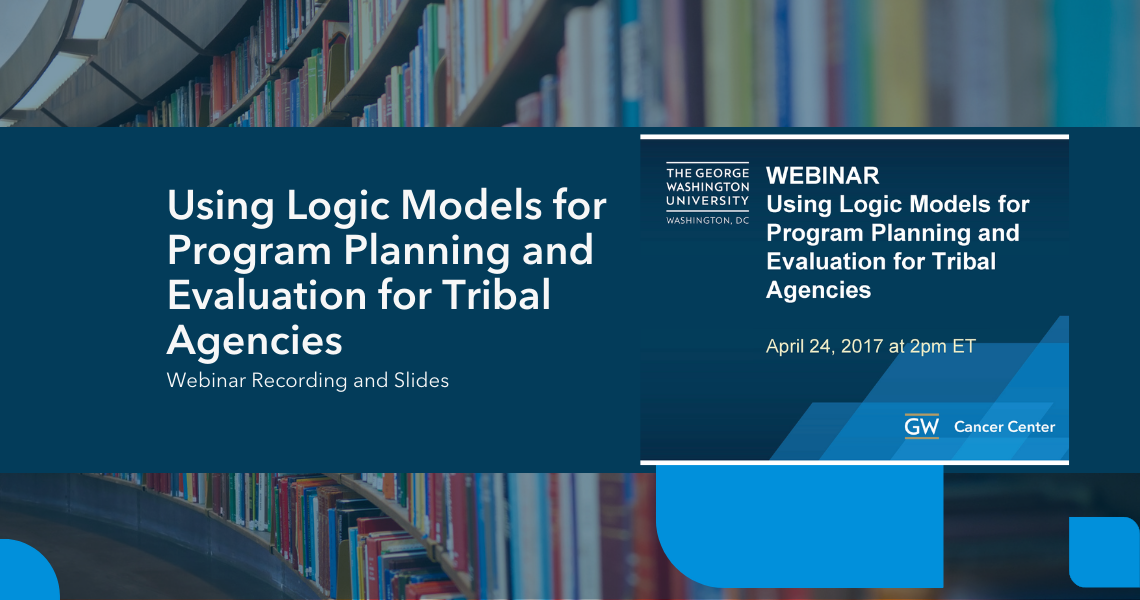Secure and sustainable funding is crucial for cancer control programming to flourish. Logic models can help convey to funders "why your program is important, and the logic behind why you expect it to be effective" and successful.
On April 27, 2017, during National Cancer Control Month, we invited past, current and future tribal grantees to this introductory webinar on how to prepare successful grant proposals using logic models. This webinar was organized in response to the evaluation of the American Indian Alaska Native Cancer Summit in 2016, which found that tribes seek more technical assistance on grant writing and capacity building.
Learning Objectives:
- Explain the importance of creating specific, measurable, attainable, realistic and time-bound (SMART) objectives and logic modeling
- Describe how to develop logic models for programs implemented by your tribal agency
- Illustrate the application of logic models in planning and evaluation
- Locate resources for creating logic models
This webinar is best for tribal grantees seeking supplemental and diversified funding.
Presenters:
Elton Naswood is a Senior Program Analyst, Capacity Building Division at the Office of Minority Health Resource Center, a nationwide service of the Office of Minority Health. Mr. Naswood is a member of the Navajo Nation and received a Bachelor of Arts Degree in Sociology and American Indian Justice Studies from Arizona State University and attended the Graduate degree program in American Indian Studies at the University of California, Los Angeles.
View Using Logic Models for Program Planning & Evaluation for Tribal Agencies Webinar Slides (PDF)
